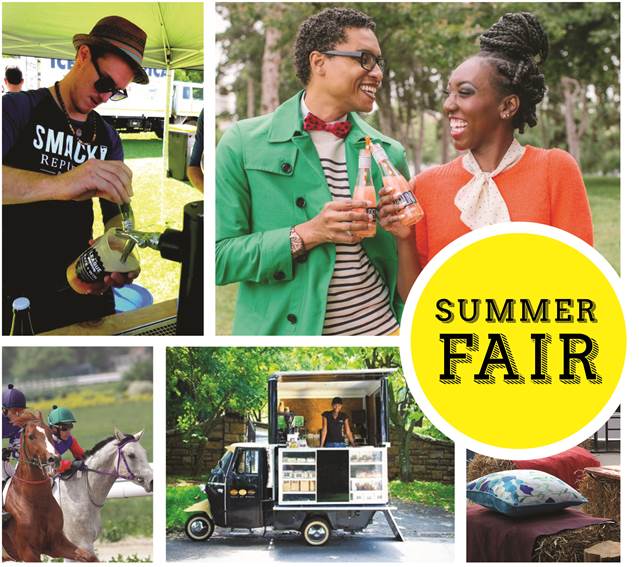To be or not to be – Affirmative Action
Thanks to this budding young journalism student Giselle that got in touch with us from Cape Town, she has an itch and asked if she can scratch it on Represent – being the citizen journalism platform we are – we said BRING IT ON – here goes…. Please give Giselle your comments. To be or not to be… that is the question. To be black in the economic work force, recruited via aff… irmative action (AA), what questions does this invoke? To be white in the waiting room while waiting for a job interview, when you know that the final choice of the interviewer is bound to be a decision based on AA. The question here would most probably be: “what am I doing here?” I had a heated debate with four of my friends the other day. About, you may have figured already, the topic at hand. So there the five of us sat, in a small res room. Two on the couch, two on the bed and me, on the chair in the centre, near the door. I figured that if there was any violence involved, I could just make a swift exit. Shane, who sat on the couch with Shereen, was most passionate about his cause for AA. “How many years have blacks been denied resources that were rightfully theirs?” Apartheid began in the 1930’s. The black population was restricted to living all cramped up in Bantustans, while whites lived in posh houses. Their salaries allowed them luxuries that ‘native’ South Africans weren’t given the chance to dream about. At the moment the population’ sits at 75.2% being black, 13.6% are white, 8.6% are Colored and 2.6% are Indian. This may all seem very general, but it is the sad truth of our history. On the contrary, is it fair to outright exclude whites from most of the jobs that are offered? A third year, media student asked the graduate placement office whether she has any chance of getting a job through the agency. The woman in charge sent a reply saying that the best thing for her to do is flee, because “there’s no chance in hell” that they would even be able to get her an interview with any huge company because of AA. Emma White is an international student that has lived in England and Zimbabwe prior to coming to South Africa. Her argument is: how does being a foreign South African have anything to do with fixing the wrongs of apartheid, when her family played no role in South Africa’s history? So I put this question forward to my friends: is AA...
How do you REALLY feel about SOUTH AFRICA?
If you haven’t heard of them already, they’re the guys that are trying to convince South African’s abroad to come home… You know what we say – Fit in or Rock off….Live wherever feels like home. We’re doing just fine thanks. Anyway – here’s your chance to have your say on how you feel about South Africa – you can win an IPOD doing it -… Come on, let it out and support these guys… The Homecoming Revolution and Research International are working together to research sentiments towards SA. If you currently live or ever have lived in South Africa, we want to hear your thoughts and opinions on South Africa. 15 minutes of your time is all that’s required to complete the survey, in which you could stand a chance of winning an Apple iPod. The Homecoming Revolution and Research International are working together to research sentiments towards SA. If you currently live or ever have lived in South Africa, we want to hear your thoughts and opinions on South Africa. 15 minutes of your time is all that’s required to complete the survey, in which you could stand a chance of winning an Apple iPod.Please be completely honest, the information you supply will be entirely confidential and we will only contact you if you’re the winner of the prize. Results of the survey will be used to figure out how far we’ve come and what still needs to be done to achieve greatness! The survey runs from the 15th September to the 30th September 2005, and the prize draw will take place on the 3rd of October 2005. Winners will be notified via e-mail 1 week from the date of the draw and they can expect their prize to be delivered within 3 weeks from the date of notification. Correspondence will only be undertaken with prize winners. CLICK HERE FOR HOMECOMING REVOLUTION...
MAI MAI market in the city – a fascinating place
In search of traditional Swazi and Zulu dancing props, Sisiwami and Portia swung past the buzzing Noord Street taxi rank on a mission to find the downtown Sangoma market “under the highway”. Officially known as the MAI MAI market, it is a fascinating hub of rural wisdom and spiritual ways, the prices are higher than we expected but walk around a bit before you buy and if you’re up for it,… remember to negotiate! It’s well worth a visit! MAI MAI MARKET Corner Anderson & Berea Joburg City CLICK HERE FOR PICS OF MAIMAI Thanks to the City of Johannesburg website for the full info as alwasys – click here for the full article: “It is the oldest market in Joburg – dedicated to traditional healing. Apart perhaps, from the Faraday market, no other complex can boast such a rich concentration of traditional herbs and healers. The sickly of the city flock here to have their ills, physical and spiritual, divined and treated by traditional healers. But, following years of neglect, the Mai Mai bazaar began to generate. Now moves are underway to restore the market to its pristine beauty and promote it as a prime tourist destination in the city. The market has now been brought under the management of the Metropolitan Trading Company, a council-owned company dedicated to the construction and maintenance of markets throughout the city, and already, signs of improvement are beginning to show. Dubbed “Ezinyangeni” – the place of healers, the Mai Mai is nestled on the eastern wing of the city centre. Jabu Vilakazi, manager of the market, describes it as “Afrocentric”, catering for indigenous needs and practices, and indeed, it is here that some spiritual and cultural elements of indigenous knowledge have been reworked and preserved. Many consider it to be the “muti” (traditional medicine) capital of Johannesburg, with most of its 176 units dedicated to traditional healing. Mai Mai is also home to some 600 people, many of whom have lived in the complex for decades, evolving into a close-knit and self-contained community. Dance competitions featuring dancing troupes from hostels across the city are a regular feature of the complex. “What sets the Mai Mai apart is its unique product, the presence of an established community in the premises and of course, its cultural richness,” says Nhlanhla Ndovela, of the Metropolitan Trading Company. Tourists fascinated by its exotic offerings stream to the market. “They come here to buy traditional artefacts, including Zulu attire, clothes made from animal skins and feathers, walking sticks, knobkerries, shields, sandals, beaded items. Some also visit the place to have their ills diagnosed,” says young shop assistant...






